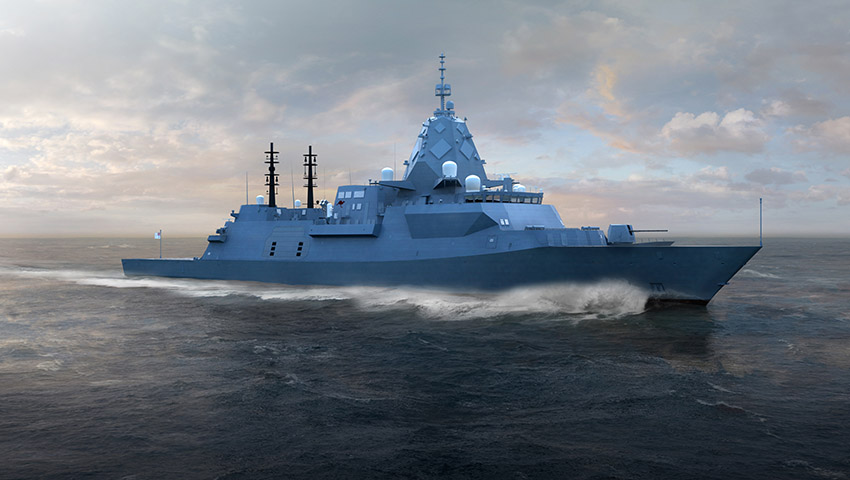Defence Industry Minister Melissa Price has announced more than 30 engineering students will receive valuable work experience with Defence and some of Australia’s largest shipbuilders in the coming weeks after receiving Defence-funded naval shipbuilding scholarships.
Minister for Defence Industry Melissa Price congratulated defence industry partners for enabling the 32 undergraduates to get a taste of life in Australia’s growing defence industry through the National Naval Shipbuilding Pipeline Scholarship.
Minister Price said the Defence-funded pilot scholarship program, administered by the Naval Shipbuilding College, aimed to strengthen the pool of future engineering talent available for Australia’s Naval Shipbuilding Enterprise.
“It’s fantastic to see Defence and industry pulling together in these challenging times to support placements for people who are keen to be involved in our national shipbuilding enterprise. This is a terrific new program that will provide future workers with valuable, hands-on industry experience,” Minister Price explained.
The scholarship supports a 12-week paid internship in Defence or a defence industry organisation and is endorsed by Engineers Australia.
“Participants are studying the in-demand engineering disciplines that the Enterprise requires, including computer and software systems, mechatronics and mechanical, electrical and electronic engineering,” Minister Price said.
BAE Systems/ASC Shipbuilding, BOUW Ballistics, Cubic Defence Australia, DefendTex, Department of Defence, KBR, Laser Central, PHM Technology, Products for Industry, Protonautics, Raytheon and RUAG are all set to host students over the coming weeks.
Minister Price added, “Australia’s National Naval Shipbuilding Enterprise will need more than 15,000 workers across the nation. We must equip our future workforce with the skills required for a long and successful career in the shipbuilding industry while they’re still studying.”
Applications for the 2021 National Naval Shipbuilding Pipeline Scholarship are now open for second-year students via the QUT website and RMIT website.
The nine Hunter Class frigates will be based on the BAE Systems Type 26 Global Combat Ship currently under construction for the Royal Navy and will replace the eight Anzac Class frigates when they enter service beginning in the late 2020s.
The Hunter Class is billed as an anti-submarine warfare (ASW) centric vessel delivering an advanced ASW capability to the Royal Australian Navy at a time when 50 per cent of the world’s submarines will be operating in the Indo-Pacific region.
BAE Systems Australia announced that it had selected Lockheed Martin Australia and Saab Australia as combat systems integration industry partners, responsible for delivering the Australian designed CEAFAR 2 Active Phased Array Radar, Lockheed Martin designed Aegis combat management system and Saab Australia 9LV tactical interface.
The $35 billion program sees ASC Shipbuilding become a subsidiary of BAE Systems throughout the build process beginning in 2020 at the Osborne Shipyard in South Australia, creating more than 4,000 jobs.
BAE Systems expects the Australian industry content (AIC) for the Hunter Class build will be 65-70 per cent, which will create and secure thousands of jobs for decades.
At the end of the program the Commonwealth will resume complete ownership of ASC Shipbuilding, thereby ensuring the retention in Australia of intellectual property, a highly skilled workforce and the associated equipment.
SEA 5000 is expected to support over 500 Australian businesses who have been pre-qualified to be part of the Hunter Class supply chain, with the Australian steel industry in particular benefiting from the 48,000 tonnes of steel required to build the ships.






